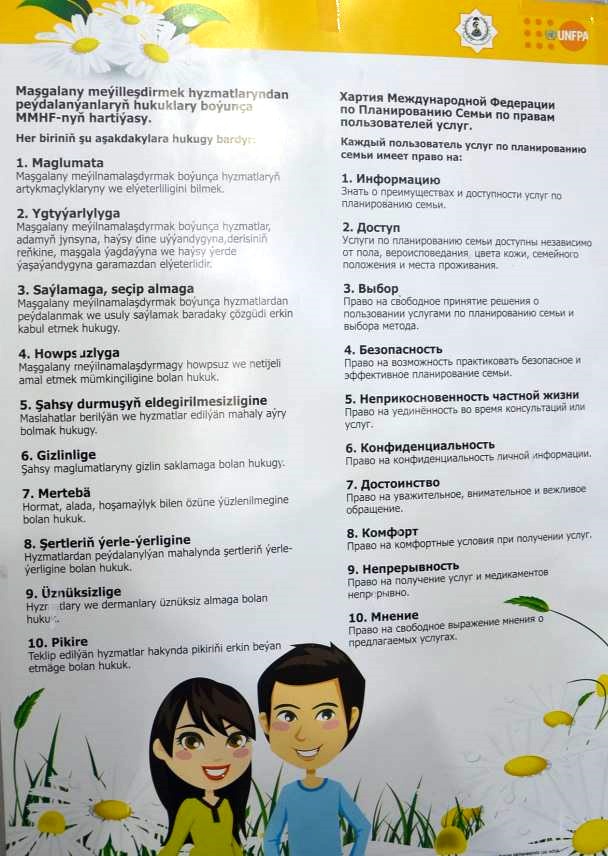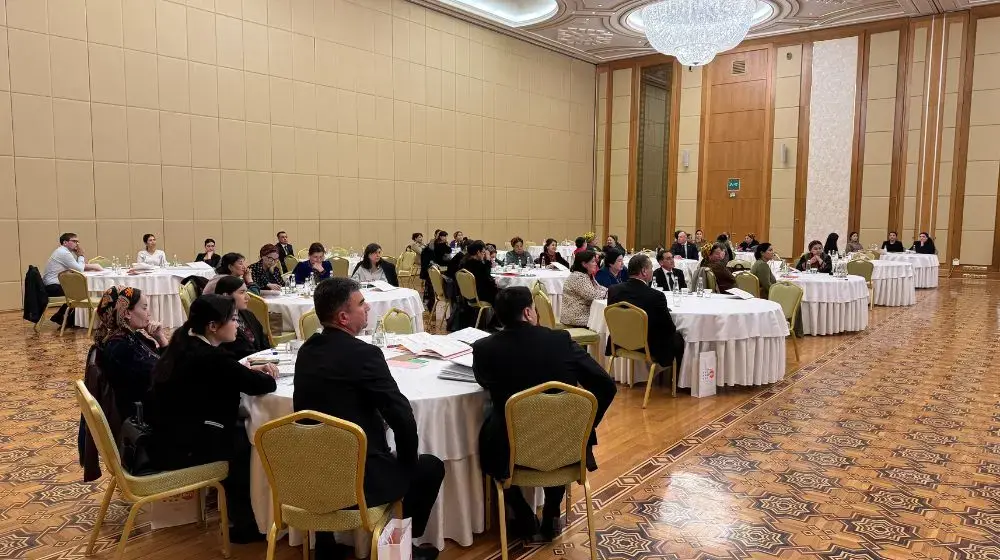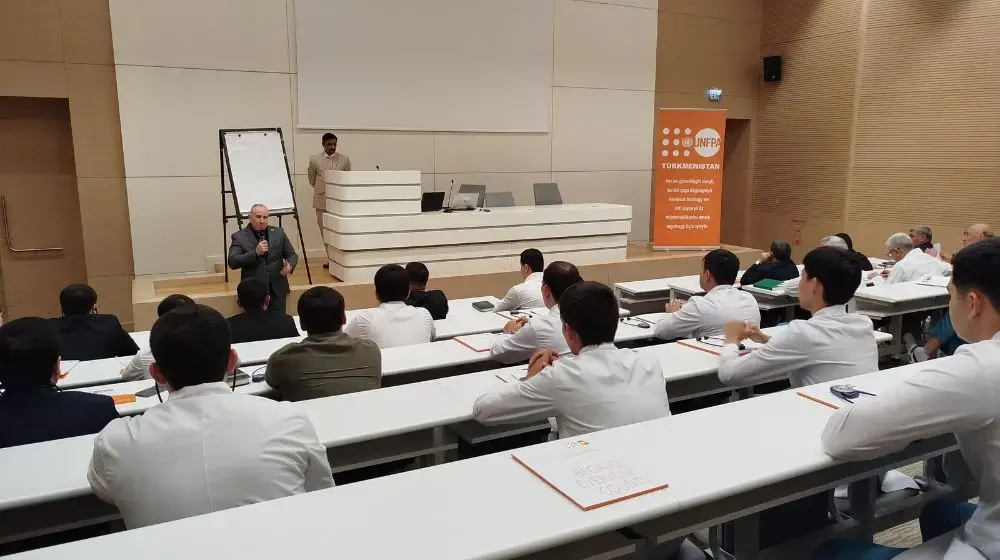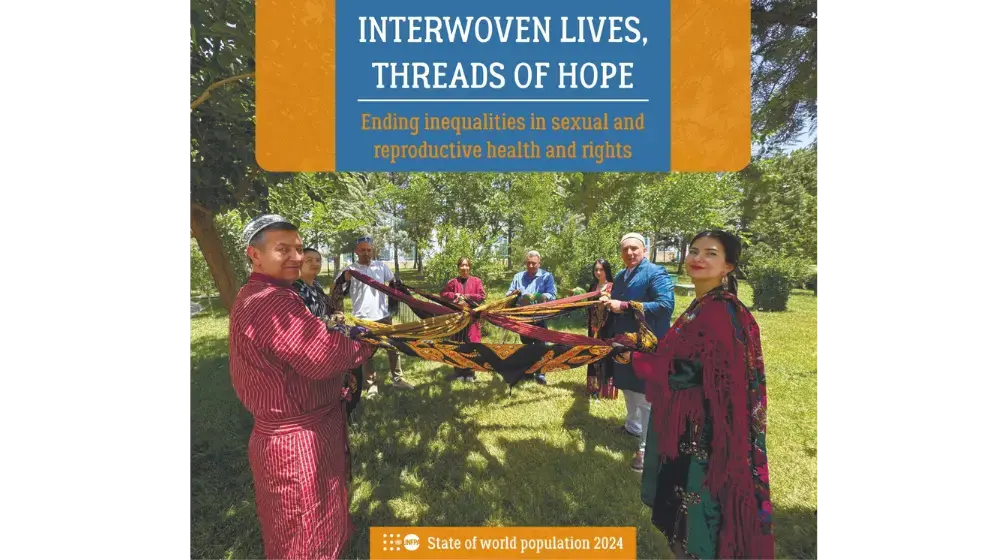Quality improvement of the reproductive health services was the focus of the meeting held at the Mother and Child Health Care Clinical Center with participation of more than 100 reproductive health specialists from the capital and all velayats. The Ministry of Health and Medical Industry of Turkmenistan and UNFPA, United Nations Population Fund organized the consultation meeting.
The participants discussed how they can improve the quality of services through integrating the reproductive health care into the health houses, which is the first point of contact of the healthcare system in addressing overlapping health needs for women, men and adolescents in Turkmenistan. Such integration would mean that, for instance, a woman could address her health needs including family planning, maternal health, antenatal care, cervical cancer all in one location, or n a more efficient manner through referrals.
At the meeting, a few policy documents and monitoring tools were revised to ensure better access of women, men and adolescents to quality reproductive health services. The revised regulatory framework expanded the functions of the reproductive health rooms and specialists, and updated the checklists for monitoring of service provision with focus on reproductive rights.
“There is compelling evidence globally th
at integrating reproductive health services into the primary health care leads to higher quality and better accessed health services,” said Ms. Bayramgul Garabayeva, UNFPA Turkmenistan Assistant Representative. “We’re pleased to continue our partnership with the Ministry of Health and Medical Industry in strengthening the mechanisms for ensuring that every woman, man or adolescent receives quality services in the area of reproductive health, including voluntary family planning, and is treated with dignity and respect.”
Currently there are designated reproductive health specialists in all regional centers and districts of the country. The engagement of these specialists with the family doctors is critical in meeting the needs of women of fertile age, specifically those with health conditions or lower socio-economic status. Family doctors play an important role in identifying the health needs of families and women in their catchment areas and can refer the clients to the family planning service providers within the same facility.

A growing body of research shows that linking health services leads to better access to and use of reproductive health services by women and couples. Another benefit of integrating services is that the health systems can use limited resources more efficiently and improve financial sustainability.
“We thank UNFPA for the support in strengthening the reproductive health system in Turkmenistan,” said Maral Ilmammedova, Chief obstetrician-gynecologist of the Ministry of Health and Medical Industry. “Integration of reproductive health services, which is one of our areas of cooperation, is starting to bring the first results. In partnership with UNFPA we will continue mobilizing all of our efforts and resources in ensuring that the needs of our women, men and adolescents are met in an effective way.”
Ms. Akjemal Durdyeva, Director of the National Reproductive Health Center provided an overview of the situation of the reproductive health services countrywide and presented recommendations on improving the quality, accessibility and delivery of services to women, couples and adolescents. Based on the recommendations the meeting participants engaged in a discussion on ways to address the findings.
Four working groups convened to update the regulatory framework of the Ministry of Health and Medical Industry on adolescent reproductive health, male reproductive health and family planning. Lively discussions took place among reproductive health specialists on shifting the focus of the policy documents to make the services more accessible, client oriented and integrated into the existing structure of the reproductive health service delivery points. The next steps were identified in adopting the policy documents and starting their implementation.
***
For additional information, please contact:
Kemal Goshliyev, National Programme Officer on Reproductive Health
goshliyev@unfpa.org
Ene Tuyliyeva, Advocacy Communication Associate
tuyliyeva@unfpa.org
Tel: 488324
Web: turkmenistan.unfpa.org, tm.one.un.org




